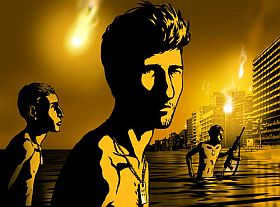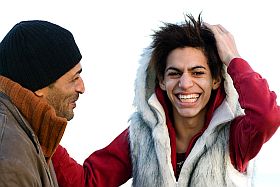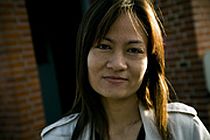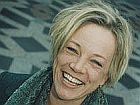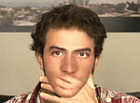


Århus Filmfestival 1/CPH:DOX 11
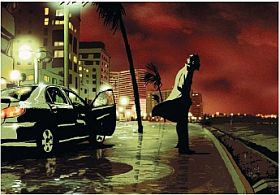
Nu kan vi der bor vestligere selv se efter, er Ari Folmans Waltz with Bashir vildt flot,men kold og tom? Kollega Tue Steen Müller gik frustreret fra visningen i København læser vi lige nedenfor. Og har den erfarne mand dårlige fornemmelser med det kunstneriske under det fremragende håndværk – ja, så er der noget at kigge efter, ved jeg. Nu har vi de to flotte stills for os – vi må bestemt ind og finde ud af det med den film. Frustreres med forberedelse eller spontant væltes, måske.. Den vises i Øst for Paradis på lørdag 19:00
Århus Filmfestival, som de kommende dage sekunderer CPH:DOX med vigtige og fremragende dokumentarfilm valgt efter en ny skarp profil, har også en lille afdeling på tre film, som den københavnske festival har valgt til dem. Så filmene supplerer det de vil i Århus med dokumentarfilmsektionen.
